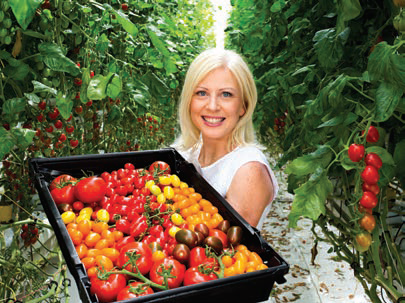Mike Neary, Director of horticulture at Bord Bia, highlights potential opportunities in fresh produce emerging from recent research into consumer attitudes and behaviors
Bord Bia has recently completed new research on the fresh produce market, which was carried out with the aim of understanding the attitudes and behaviours of consumers around the purchase and consumption of fresh produce and using the research findings to explore the opportunities for growth in the fresh produce category. The findings of the research will be presented to the fresh produce industry in the Bord Bia Thinking House Insight Centre at the end of November. This article gives a summary overview of some of the key topline findings that have emerged from the research. The research included a national face to face survey of 1,000 adults, five focus groups discussions, home visits to explore what was bought and how it was used, and an online questionnaire designed to segment consumers and establish how they could be targeted in the future.
KEY FINDINGS:
Consumers who eat some fresh produce at least once a week
● Fresh fruit 96%; fruit juice 68%; smoothie 35%
● Fresh veg 96%; frozen veg 46%; tinned veg soup 31%
● Fresh potatoes 96%; frozen chips 50%
● Salads 69%; prepacked chilled leafy salad 47% prepacked chilled wet salad 35%; prepacked chilled mix tray salad bowl 29%
Daily Consumption by consumers
● Fresh fruit 45% ● Fresh vegetables 51% ● Fresh potatoes 34%
● Research clearly shows that consumers consider that fresh fruit and vegetable consumption are central to a healthy and balanced nutritious diet.
Portions consumption
● As a nation, we are improving marginally on the number of portions consumed.
● Awareness of the number of portions that we should eat was measured at over 5 portions with respondents claiming to eat over 4 portions daily.
● Fruit is primarily consumed at breakfast (45%) and snack time (68%) with vegetables mainly consumed at lunch (47%) and dinner (78%).
The research reported some key similarities across the life stages in the purchasing of fresh produce including pre-family, early family, mature family and empty nesters life stages.
These included:
● Available budget to spend is a focus for all life stages.
● Use of special offers is a factor to guiding purchases.
● Meal planning was evident and influences produce selection and purchase.
● Standard fruit and veg were evident in all shopping baskets viewed as part of the research.
The fresh produce purchase journey for consumers which influences their behaviour in-store revealed the following:
● 54% know before they go shopping what they will purchase.
● 52% select from the display.
● 51% select by checking the special offers.
● 48% look for fresh and good quality.
● 39% compare prices.
● 33% select the same produce each week.
● 28% select what they think will taste best.
● 28% select what they think is in season.
There are four consumer segments identified in the research, detailed below which all have different characteristics and growth potential for increasing fresh produce consumption:
1. Mainstream value segment (44%) has lower growth potential and is heavily influenced by price/promotion.
2. Mainstream disengaged segment (31%) has the lowest growth potential and over-indexes on the need for cheaper prices.
3. Health and wellness segment (18%) has higher growth potential. They are the heaviest consumers of fresh produce and want to consume more.
4. Health and image segment (7%) has high growth potential and a strong desire to increase portion intake.
This summary outline from the research clearly identifies that there are opportunities to increase the consumption and market for fresh produce. Targeting those segments of consumers who are very open to increasing their purchase of fresh produce from current levels is an important starting point. This potential can be realised in part with sustained messaging and promotional activity around the category, particularly in the contribution it makes to a healthy balanced diet. Bord Bia and the fresh produce industry are currently exploring the possibility of applying in 2018 to seek EU co-funding to implement a long-term sustainable promotional campaign around fresh produce. ✽
 MIKE NEARY, Director of horticulture at Bord Bia. MIKE NEARY, Director of horticulture at Bord Bia.
For further information contact the Bord Bia Horticultural Division at email: Agripromo@agriculture.gov.ie |





